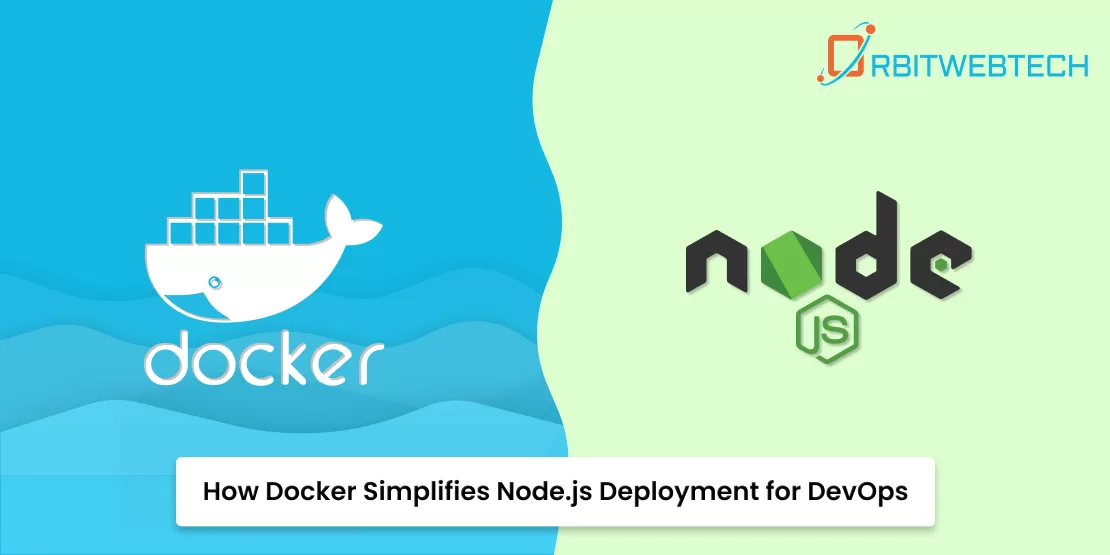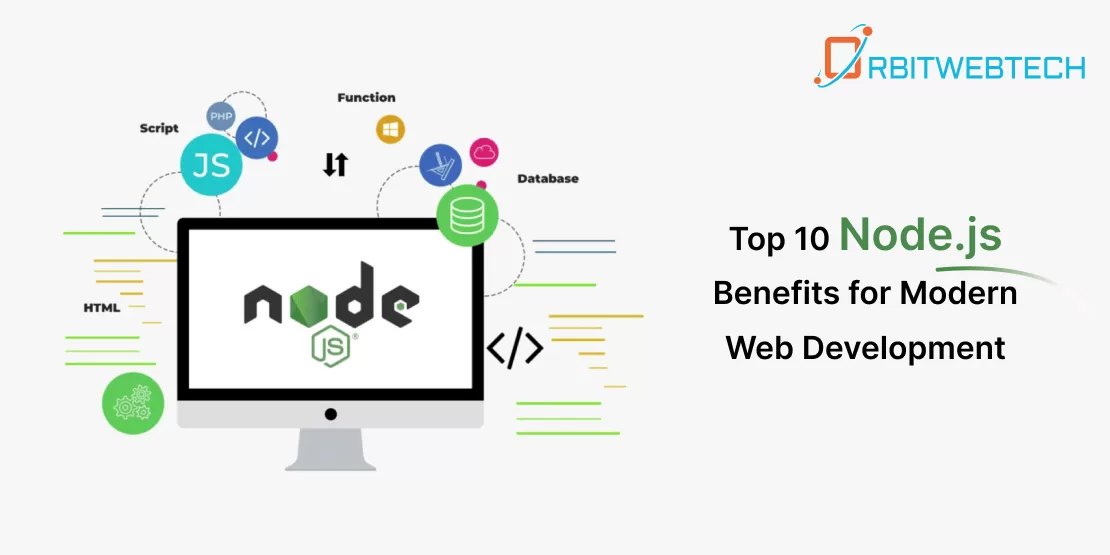
In the fast-paced world of software development, deploying a Node.js application efficiently is a crucial task for DevOps teams. Traditional deployment methods often come with compatibility issues, dependency conflicts, and inconsistent environments across development, staging, and production. This is where Docker for Node.js development proves to be a game-changer.
Docker simplifies Node.js development by providing lightweight, portable containers that encapsulate applications and their dependencies, ensuring consistent behavior across all environments. With DevOps principles emphasizing automation, scalability, and efficiency, Docker plays a significant role in streamlining workflows. This article explores how Docker simplifies Node.js deployment, its benefits, and best practices for seamless integration.
What is Docker, and How Does It Work?
Docker is a containerization platform that allows developers to package applications and their dependencies into containers. Unlike traditional virtualization, which requires a separate operating system instance for each application, Docker uses the host OS kernel, making it more lightweight and efficient.
Key Components of Docker:
- Docker Images: The blueprint of a container, containing the OS, dependencies, and application code.
- Docker Containers: Running instances of Docker images.
- Dockerfile: A script defining how an image should be built.
- Docker Compose: A tool for managing multi-container applications.
Why Use Docker for Node.js Deployment?
Deploying Node.js applications manually can lead to inconsistencies, as different environments may have varying configurations. Docker ensures that applications run uniformly across all platforms, providing significant advantages:
1. Consistency Across Environments
Developers often face the issue of “works on my machine” vs. production environments. Docker eliminates these inconsistencies by packaging everything required into a container, ensuring that an application behaves the same way across all environments.
2. Simplified Dependency Management
Docker allows you to specify all dependencies in a Dockerfile, reducing the risk of compatibility issues and ensuring the application runs smoothly, regardless of where it’s deployed.
3. Faster Deployment & Scaling
Since Docker containers are lightweight and fast to start, Node.js applications can be deployed or scaled up within seconds. This is particularly beneficial for microservices-based architectures.
4. Better Resource Utilization
Unlike traditional virtual machines, which consume significant system resources, Docker containers share the host OS kernel, reducing overhead and improving efficiency.
5. Seamless CI/CD Integration
Docker plays a crucial role in continuous integration and continuous deployment (CI/CD) pipelines, automating testing and deployment for Node.js applications across different environments.
Step 1: Installing Docker
To get started with Docker for Node.js development, install Docker from the official Docker website. Once installed, verify the installation with:
$ docker --versionStep 2: Creating a Dockerfile for a Node.js Application
A Dockerfile is a script that defines how a Docker image should be built. Below is a simple Dockerfile for a Node.js application:
# Use the official Node.js base image
FROM node:18
# Set the working directory inside the container
WORKDIR /app
# Copy package.json and install dependencies
COPY package.json .
RUN npm install
# Copy the application source code
COPY . .
# Expose the application port
EXPOSE 3000
# Command to run the application
CMD ["node", "server.js"]Step 3: Building and Running the Docker Container
Once the Dockerfile is created, build the Docker image with:
$ docker build -t my-node-app .Run the container using:
$ docker run -p 3000:3000 my-node-appThis command starts a container, binding the application to port 3000.
Deploying a Node.js Application with Docker
Using Docker Compose for Multi-Container Applications
For complex applications that require additional services like databases, Docker Compose simplifies multi-container deployments. Here’s a basic docker-compose.yml file for a Node.js app with MongoDB:
version: '3'
services:
app:
build: .
ports:
- "3000:3000"
depends_on:
- db
db:
image: mongo
ports:
- "27017:27017"Deploying to Cloud Platforms
Dockerized applications can be deployed to cloud platforms like:
- AWS (Elastic Beanstalk, ECS, EKS)
- Google Cloud (Cloud Run, Kubernetes Engine)
- Azure (App Service, AKS)
- Docker Hub for container registry management
Using container orchestration tools like Kubernetes further enhances scalability and resilience.
Best Practices for Using Docker with Node.js
- Optimize Docker Images: Use multi-stage builds to reduce image size and improve performance.
- Use Environment Variables: Store sensitive information in .env files rather than hardcoding them.
- Monitor Containers: Use Docker Logs, Prometheus, and Grafana for monitoring.
- Enhance Security: Avoid running containers as root and regularly scan for vulnerabilities.
- Automate CI/CD Pipelines: Integrate Docker into Jenkins, GitHub Actions, or GitLab CI/CD for streamlined deployments.
Conclusion
Docker has revolutionized Node.js development by simplifying deployment, ensuring consistency, and improving scalability. Whether you’re a startup or an enterprise, using Docker for Node.js deployment is a smart move for enhancing development efficiency and streamlining DevOps workflows.
For businesses looking to integrate Docker and DevOps best practices, partnering with experienced professionals is essential.
Why Choose Orbitwebtech for Docker & Node.js Development?
Orbitwebtech is a leading web development company with 12+ years of experience and an impressive 98% success score on Upwork. With 500+ successfully completed projects, we specialize in Node.js development, Docker-based deployments, and scalable cloud solutions.
If you’re looking for expert assistance in deploying a Node.js application with Docker and cloud integration, Orbitwebtech is the best web development company to help you achieve seamless and efficient deployments.
🚀 Contact Orbitwebtech today to take your Node.js applications to the next level!

